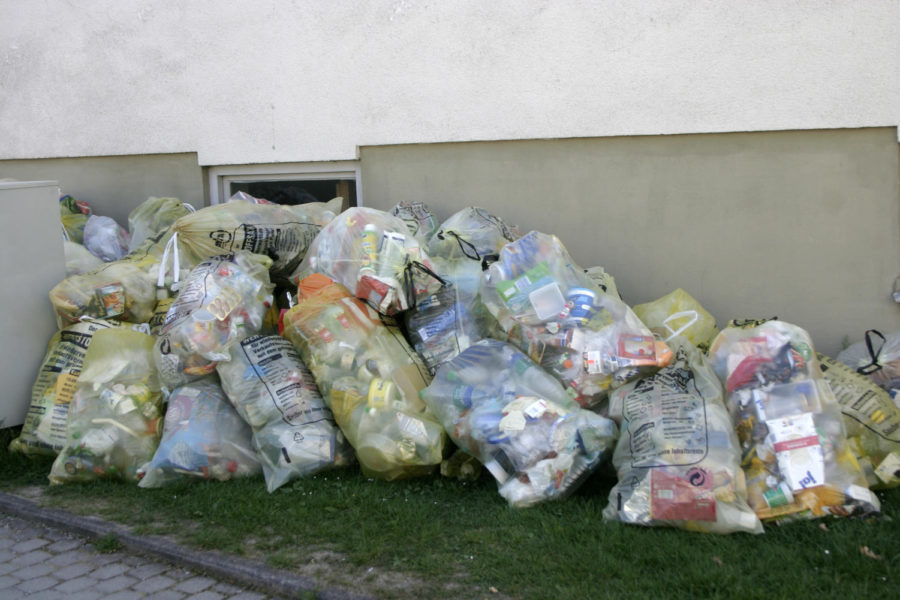The Environment and Covid
Covid has not only impacted people, but the environment too
December 14, 2021
An increasingly alarming amount of problems have arisen due to the ongoing COVID-19 pandemic– political disputes, isolation, death. Among those issues is one that will continue to impact the earth, and its inhabitants, as a whole: how this unfortunate turn of events has almost completely destroyed our society’s strides towards being more eco-friendly. Between the obvious influx in the use of disposable PPE (Personal Protective Equipment), such as latex gloves, single-use face masks and hospital gowns, and the restrictions on utilizing reusable items in shops, the planet is suffering greatly.
Recent studies have suggested that people around the globe use roughly 129 billion disposable face masks per month, which is a downright terrifying number to think about in the long run. Even though there’s more than enough reasons for people to continue to seek out these single-use masks– they’re convenient, disposable, accessible, and most importantly, protective– these types of PPE are unable to be reused or recycled. What this means for the planet is that while this waste has been accumulating, it’s also been worming its way into many different ecosystems and habitats. Animals become ensnared in the straps of face masks, mistake gowns for food floating in the ocean, and suffocate by getting trapped in latex exam gloves. As if the havoc this equipment wreaks on animal life isn’t enough, the vast majority of PPE is made up of polypropylene, polyester and other plastics, which means they will never truly biodegrade. Over time, they will break down into harmful microplastics that can enter our water supply and, by extension, our food and crops.
Along with that, the majority of stores have ceased to allow using reusable bags, cups, etc.. at one point or another during the earlier stages of the pandemic, which prompted them to have to provide more disposable containers to customers. Even with the limitations on plastic bags that started circa 2018, customers were still expected to use the paper or plastic bags available in the store, as well as plastic cutlery, takeout boxes, and disposable drink cups. With the increased use of these convenience products to limit contact with others’ germs, significantly more plastic/non-recyclable waste has been piling up in landfills. Other plastic items, such as packaging from online shopping and individually wrapped food items, have also greatly contributed to this problem.
Our planet has been paying the price over the last few decades because of our own careless actions. The only way humans as a society can reverse the problems that we have caused is to take action to drastically reduce the negative effects we have on the earth – starting with reducing the amount of pollution we create. This has always been a crucial step in saving our planet, but it has become extremely relevant due to current events. Now that the amount of waste sent to landfills is skyrocketing because of measures taken to assist with handling the COVID-19 pandemic, there is no better time than the present to try to save our world.
